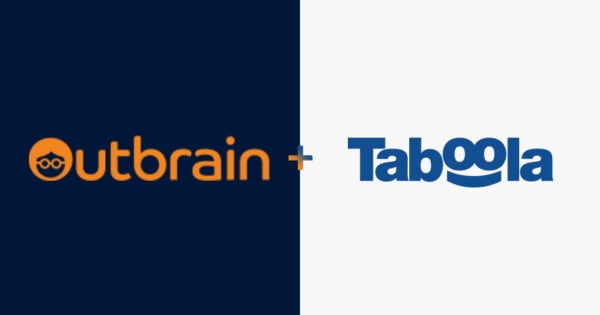
After years of speculation, Taboola and Outbrain, the two largest content recommendation companies, have agreed to tie the knot.
While this appears to be a “once in a lifetime” marriage—of convenience for one, necessity for the other—both companies’ main clients (publishers) are sitting in the pews not quite sure what to make of this ceremony. And some industry watchers see this wedding as a precursor to the potential next phase: IPO.
Over the past 10 years, the industry has been awash with speculation that the two would eventually join forces. It makes sense, watchers say, as they both have similar capabilities, technology and point of view that they can help publishers make more money. So why now, as opposed to then?
Long courting process
In a conversation with Adweek, Taboola CEO Adam Singolda and Outbrain CEO Yaron Galai said the leadership of both companies had been meeting in private for close to a decade, as part of what Singolda called “a human process.”
“A lot of times, with humans being humans, it just takes some time to build that trust with each other,” Singolda said.
And now Singolda will take the reins of the new merged company; Galai will act in an advisory capacity for 12 months after the deal has closed.
Additionally, Singolda noted the timing of the merger was deliberate given the regulatory scrutiny bearing down on big tech names such as Amazon, Facebook and Google, given their dominance of the online ad market.
“I think they’re strong and I think they’re perhaps too strong,” said Singolda. “So, the only way we can truly give them a fight is by joining forces.”
Terry Kawaja, CEO of Luma Partners, an investment bank that operates primarily in the ad tech and mar tech space, described the merger as sensible given the history of the pair, namely their shared value proposition of native advertising.
“It should have happened years ago,” he said. “There’s no doubt that the company is likely to be a significant revenue partner for publishers,” he added.
Meaningful competitor
Singolda and Galai also mentioned how the combined entity would pose as a “meaningful competitor” to Facebook and Google for advertisers. Albeit, Singolda discussed the scale of the disparity between his outfit and the behemoths of Silicon Valley, noting that the combined entity will generate “about $2 billion in revenue” per year.
Compare this with the $39 billion in revenue (the vast majority from ad spend) that Google-parent Alphabet reported in the three months to June 30 this year, and the $17 billion reported by Facebook for the same period. And the scale of the challenge becomes apparent.
“So, we’re very small and we have a huge mission of getting advertisers a chance to have an alternative to the three monopolies [including Amazon],” added Singolda.
Publisher concerns
Given Outbrain and Taboola’s dominance of the content recommendation market, some publishing sources expressed concerns over exactly how the proposed entity will operate, with some even saying that it may lead to “less guarantees on minimum spend.”
“In many respects, we look at the two solutions as Coke and Pepsi,” said an exec for a top media publisher, who spoke with Adweek on the condition of anonymity because they work closely with Taboola, regarding how the difference between the two companies is minimal. Media execs no longer have to choose between the first-punch sweetness or the longer-lasting flavor.
“We’ve been focused on Taboola primarily for the ability to control the quality of ads that are showing up on the site, and they’ve given us more control if we see something we don’t like, which happens a lot, [so] we’re able to shut down those ads much more readily,” the source said. “Outbrain didn’t give us the same kind of control.”
Continue Reading
Pages: 1 2
